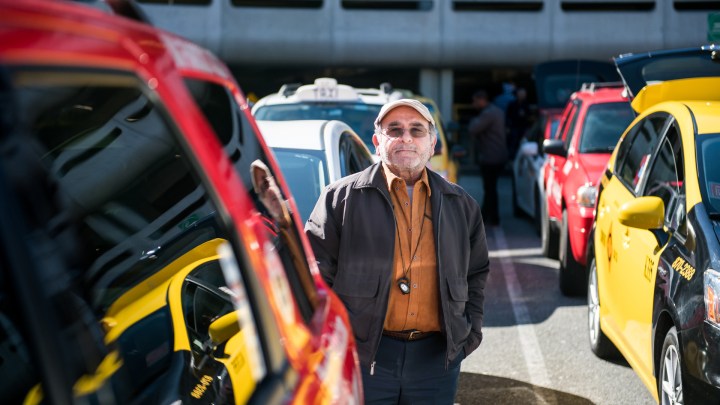
San Francisco taxi drivers still struggle with medallion debt
San Francisco taxi drivers still struggle with medallion debt

New York City is beginning to provide debt relief for taxi drivers who lost their livelihoods to less regulated companies like Lyft and Uber. San Francisco is not.
The city made tens of millions selling medallions, or transferable permits, to drivers. Many of the drivers are immigrants or people of color who took out loans from a local credit union to get the medallions. Now, those drivers are on their own to deal with the debt.
Two years ago, before the pandemic, I went to the San Francisco airport taxi lot to talk with drivers who took out loans to buy medallions at $250,000 apiece. When Ali Asghar got his, he said, he threw a big party.
“We bought the medallion, I was happy. My family was happy. We celebrated,” he said. “I feel that was the happiest day in my life. I hug my son. I hug my wife.”
For decades, taxi medallions were a sure bet. Drivers say they could earn $30 or $40 an hour and make money leasing the medallion out to other drivers. Leasing out a medallion was the de facto cab retirement plan.
But with less regulated companies like Uber and Lyft taking away business, Asghar said, taxi drivers can’t make enough to pay their medallion loans. Like many drivers, he borrowed money from a local credit union.
“We were going through that new agreement with the bank, and I was so worried. They write on their agreement, ‘If you don’t pay, your family, your friend, your partner, your wife, everybody, somebody has to pay this money,’” he said.
The credit union that made loans to drivers in San Francisco recently lost a case it filed against the city’s Municipal Transportation Agency, seeking relief for its financial burden linked to the loans.
When the pandemic began, Asghar said, taxi work completely dried up. Like many other drivers, he started working for the app companies that were competing with his taxi business. He said he is now driving for Lyft and Uber, along with DoorDash and Amazon. But he still owes money for the medallion.
If drivers default, they lose everything they have invested. So, taxi driver Ali Alikhani said he does whatever he can to make payments.
He has paid over $160,000 into his medallion — including by “using my Social Security,” he said.
Taxi medallions used to be available for a nominal fee, but there was a long waiting list. Then in 2010, to make money after the financial crisis, then-Mayor Gavin Newsom came up with a plan to sell them. Some 650 taxi-driving families took out loans to buy them.
Namdev Sharma, another driver, was one of them. He said he lost his home to keep making loan payments. Now, he often sits in his cab waiting hours for a fare. “I just sit here and wait and wait, and get ready for the next day to do the same thing,” he said.
The medallion program is currently frozen. Not a single one has sold since 2016, according to the San Francisco Federal Credit Union. So, the drivers are stuck with the medallions and the debt.
San Francisco’s current mayor, London Breed, did not respond to a request for comment.
Over 250 taxi drivers who bought medallions have already defaulted on their loans and lost the money they paid for them, according to the credit union.
There’s a lot happening in the world. Through it all, Marketplace is here for you.
You rely on Marketplace to break down the world’s events and tell you how it affects you in a fact-based, approachable way. We rely on your financial support to keep making that possible.
Your donation today powers the independent journalism that you rely on. For just $5/month, you can help sustain Marketplace so we can keep reporting on the things that matter to you.

















